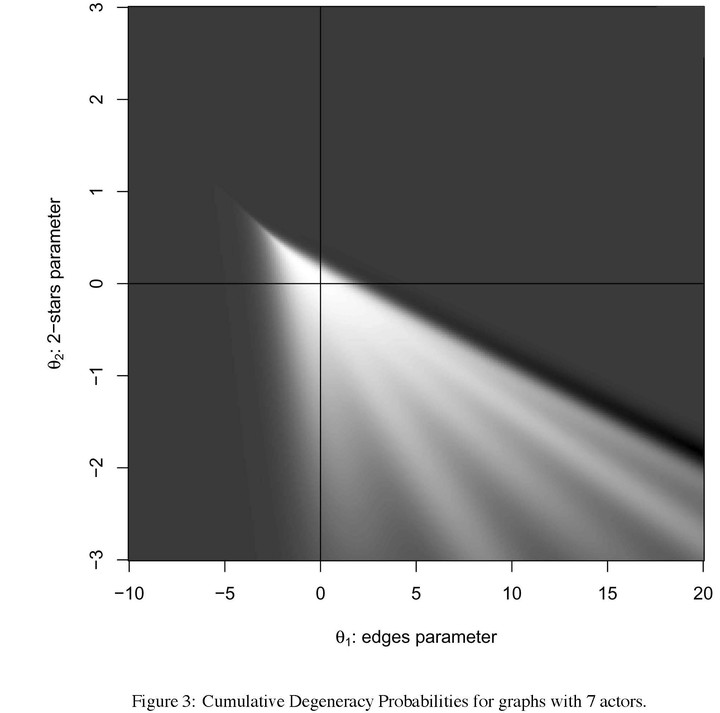
Abstract
This paper presents recent advances in the statistical modeling of random graphs that have an impact on the empirical study of social networks. Statistical exponential family models (Wasserman and Pattison 1996) are a generalization of the Markov random graph models introduced by Frank and Strauss (1986), which in turn are derived from developments in spatial statistics (Besag 1974). These models recognize the complex dependencies within relational data structures. A major barrier to the application of random graph models to social networks has been the lack of a sound statistical theory to evaluate model fit. This problem has at least three aspects: the specification of realistic models, the algorithmic difficulties of the inferential methods, and the assessment of the degree to which the graph structure produced by the models matches that of the data. We discuss these and related issues of the model degeneracy and inferential degeneracy for commonly used estimators.